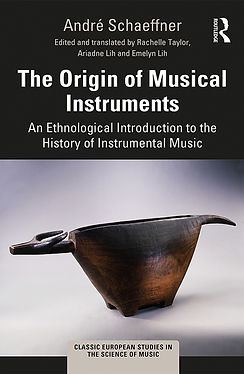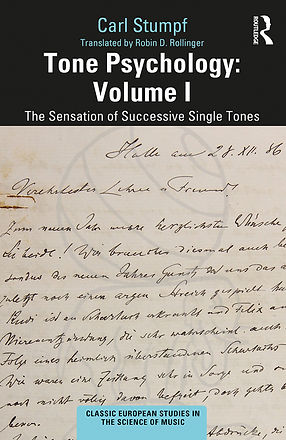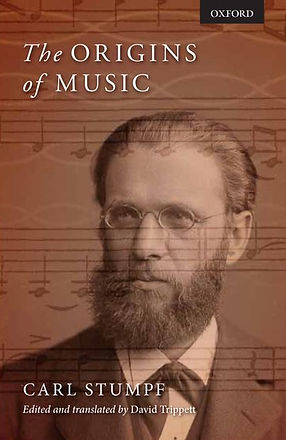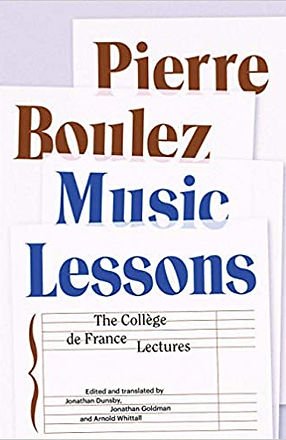ESCOM PUBLICATIONS
MUSICÆ SCIENTIÆ publishes empirical, theoretical and critical articles directed at increasing understanding of how music is perceived, represented and generated.
Any systematic work within the domains of psychology, philosophy, aesthetics, music analysis, musicology, cognitive science, education, artificial intelligence, modelling and neuropsychology that advances that aim will be considered for publication.
MUSICÆ SCIENTIÆ is a trilingual journal (English, French, German) and the official organ of ESCOM, the European Society for the Cognitive Sciences of Music.
MUSICÆ SCIENTIÆ was founded by Irène Deliège and first appeared in spring 1997.
Editor-in-Chief: Dr. Geoff Luck, Centre of Excellence in Music, Mind, Body and Brain, University of Jyväskylä, Finland.

ISSN: 1029-8649, appears four times per year
(March, June, September, December)
2 year Impact Factor: 2.2
Now ranked 38/99 in Psychology, Experimental
Irène Deliège Translation Fund
The first volume in the series is The Origins of Music (Die Anfänge der Musik) by Carl Stumpf (1911), translated and edited by David Trippett, and published by Oxford University Press on 26 July 2012 (288 pages, ISBN 978-0-19-969573-7).
David Trippett was awarded the Bruno Nettl Prize of the Society for Ethnomusicology in December 2013 for the translation and editing of this volume.

1st Edition Music Psychology
Edited By Daphne Tan, Ernst Kurth
ISBN 9781032201467
306 Pages 1 B/W Illustrations
Published September 25th, 2023, by Routledge
The Society of Music Theory's (SMT) 2023 Citation of Special Merit goes to Ernst Kurth: Music Psychology, edited by Daphne Tan and Translated by Daphne Tan and Christoph Neidhöfer, published by Routledge.
The Citation of Special Merit is occasionally awarded for editions, translations, reference works, and other types of publications that are of extraordinary value to the discipline, and the committee is pleased to present such an award this year.
As a modern discipline, Music Theory has branched out into many diverse directions, and the award will go to a volume that brings many of these together. A study that is strongly rooted in the History of Theory, this volume also stands as foundational groundwork for research in aesthetics and phenomenology, as well as psychology, embodiment, and music cognition.
The volume’s detailed editorial work is truly impressive, and the thoughtful presentation and insightful contextualization of complex ideas will make this volume both valuable to expert scholars and approachable for those who are new to the subject. Equally remarkable is the extraordinarily attentive approach to translation, responding to the imposing challenges of the original material with a prose style that is both accurate and elegant.
The first edition of Ernst Kurth’s Musikpsychologie appeared in 1931, and was regarded by contemporaneous psychologists as no less than the foundation for a new systematic approach to the perception and cognition of music. Time has hardly diminished Kurth’s standing as an original scholar with a distinctive point of view. Music theorists, both in Europe and North America, regard him as an important figure in the history of music theory. Daphne Tan and Christoph Neidhöfer’s first full translation provides English-speaking theorists the opportunity to delve deeper into his ideas.

The fourth is The Origin of Musical Instruments (Origine des Instruments de Musique) by André Schaeffner (1936), translated and edited by Rachelle Taylor, Ariadne Lih and Emelyn Lih, and published by Routledge on 27 February 2020 (418 pages, 103 B/W illustrations, ISBN 9781472463999; also available in paperback and as an e-book).
Almost 80 years after its first publication, the scientific relevance and influence of Schaeffner’s primary hypothesis—that the origins of music can be traced to the human body through gesture, dance and the movements in the use of musical instruments and their ancestor tools—remains pertinent in fields which have returned to informed speculative and empirical research on the origins of music.
This first English edition is accompanied by editorial footnotes and introductory texts, and the influence of Schaeffner’s thought on several generations of musicologists makes his work an essential piece of reading for ethnomusicologists, music psychologists, organologists and musicologists interested in the history of their field.
Tone Psychology (Tonpsychologie) by Carl Stumpf (1885), translated and edited by Robin D. Rollinger. Volume 1: The Sensation of Successive Single Tones was published on 20 September 2019 by Routledge
(368 pages, 20 B/W illustrations, ISBN 9781472435231; also available as an e-book. Volume 2 is currently in preparation).
The subject of Volume I is the sensation of successive single tones. Stumpf demonstrates that analysis leads to the realisation of a plurality (is there only one tone or are there several tones?), which is then followed by a comparison: an increase may be observed (one tone is higher than the other) or a similarity may be realised (both tones have the same pitch or the same loudness). With almost mathematical stringency, Stumpf developed a topology of tones. Volume II deals with the sensation of two simultaneous tones (musical intervals). The books are stimulating, rewarding and provocative and will appeal to music psychologists, music theorists, general psychologists, philosophers, epistemologists and neuroscientists.
Book Review in Musicae Scientiae
Carl Stumpf, Tone Psychology: Volume I, The Sensation of Successive Single Tones
Robert O Gjerdingen
Published: 7th May 2020
The Origins of Music (2012), Carl Stumpf.
Contributors: Helga de la Motte-Haber, David Trippett.
Edited and translated by David Trippett.
Published by Oxford University Press on 29th September 2012 (282 pages, ISBN 9780199695737).
The Origins of Music was first published in German in 1911. In this text Carl Stumpf set out a path-breaking hypothesis on the earliest musical sounds in human culture. Alongside his research in such diverse fields as classical philosophy, acoustics, and mathematics, Stumpf became one of the most influential psychologists of the late 19th century. He was the founding father of Gestalt psychology, and collaborated with William James, Edmund Husserl, and Wolfgang Kohler.
This book was the culmination of more than 25 years of empirical and theoretical research in the field of music. In the first part, Stumpf discusses the origin and forms of musical activities as well as various existing theories on the origin of music, including those of Darwin, Rousseau, Herder, and Spencer. In the second part of the book, he summarizes his works on the historical development of instruments and music, and studies a putatively global range of music from non-European cultures to demonstrate the psychological principles of tonal organization, as well as providing a range of cross-cultural musical transcriptions and analyses. This became a foundation document for comparative musicology, the elder sibling to modern Ethnomusicology, and the book provides access to the original recordings Stumpf used in this process.
Available for the first time in the English language, The Origins of Music is a fascinating volume for all those with an interest in the history of psychology and music. It appears here in tandem with Self-Disclosure, Stumpf's autobiography of 1924, in which he outlines the rich life experiences behind his research career alongside his own explanation of his scientific and cultural legacy.
Music Lessons marks the first publication in English of a groundbreaking group of writings by French composer Pierre Boulez, his yearly lectures prepared for the Collège de France between 1976 and 1995. The lectures presented here offer a sustained intellectual engagement with themes of creativity in music by a widely influential cultural figure, who has long been central to the conversation around contemporary music. In his essays Boulez explores, among other topics, the process through which a musical idea is realized in a full-fledged composition, the complementary roles of craft and inspiration, and the degree to which the memory of other musical works can influence and change the act of creation. Boulez also gives a penetrating account of problems in classical music that are still present today, such as the often crippling conservatism of established musical institutions. Woven into the discussion are stories of his own compositions and those of fellow composers whose work he championed, as both a critic and conductor: from Stravinsky to Stockhausen and Varèse, from Bartók to Berg, Debussy to Mahler and Wagner, and all the way back to Bach.
Including a foreword by famed semiologist Jean-Jacques Nattiez, who was for years a close collaborator and friend of the composer, this edition is also enriched by an illuminating preface by Jonathan Goldman. With a masterful translation retaining Boulez’s fierce convictions, cutting opinions, and signature wit, Music Lessons will be an essential and entertaining volume.





